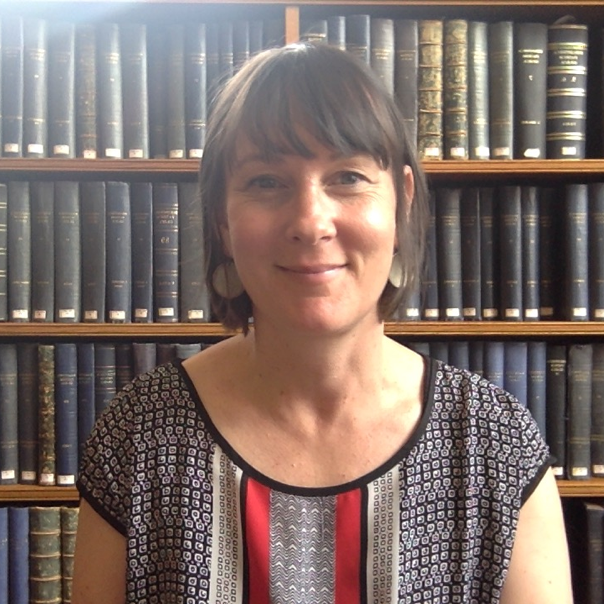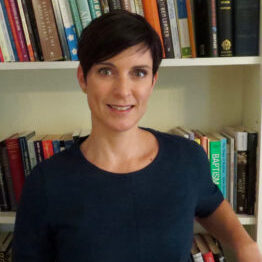Episode Transcript
[00:00:05] Speaker A: You're listening to by the well, a lectionary based podcast preaches recorded on the land of the Wurundjeri people.
[00:00:18] Speaker B: Blessed is the king who comes in the name of the Lord, Peace in heaven and glory in the highest.
[00:00:23] Speaker A: Hello everyone and welcome to our episode this week of Palm Passion Sunday. I'm Fran Barber and I'm joined by the Reverend Rachel Kromberger, who will be a familiar voice to most of you. Rachel, you've visited by the well in the past, haven't you?
[00:00:40] Speaker B: I have and it's a joy to be back.
[00:00:41] Speaker A: It's wonderful to have you. Rachel is the minister at Wesley Uniting Church in the centre of Melbourne, one of our big central city churches. And it's great to have you in particular for this week, Rachel, because we have a vast array of rich texts before us that no one minister or two ministers or community can deal with in one week. So part of our conversation today will be how a liturgist and a preacher approaches a day with such big choices. Do we focus on Palm Sunday, the triumphant entry of Jesus? Do we set aside the Sunday, as some do, for a hearing of the whole Passion story in anticipation of Holy Week? Is there a way of doing both that does justice to it and all those questions? So let's begin with what you've done in the past in your various placements in ministry.
[00:01:41] Speaker B: Thanks, Fran.
Well, Palm Sunday can be full of opportunity, really, and full of choices. And in different places I've been in, Palm Sunday has been an opportunity for ecumenical worship. It's been an opportunity for focusing on Jesus triumphal entry and the launch of Holy Week stories. It's been an opportunity for the telling of a Passion story in in the community's vernacular. And it's been an opportunity to read the full Passion narrative from the Synoptic Gospel that's appointed for the lectionary year.
[00:02:19] Speaker A: So let's lay out what those readings actually are for people. This week we have Isaiah 50, verses 4 to 9a. And that's a reading for Palm and passion Sunday.
Psalm 118, verses 1 to 2, 19, 29. We won't get to look at that one this week. Philippians chapter 2, verses 5 to 11. That is the epistle set for both Palm and Passion focus. Palm Sunday reading is Luke 19, verses 28 to 40.
And then the Passion Sunday readings include Psalm 31 and the reading from Luke chapter 22, verse 14, until chapter 23, verse 56.
[00:03:10] Speaker B: That's right.
[00:03:11] Speaker A: It's quite long.
[00:03:12] Speaker B: It is, but it's possible to to cover more than you think. So one of the ways that my communities have handled this before is to read the.
The Psalm 118 and the Passions, sorry, the palm procession story from Luke 19 and to have those readings even outside the church building process in with palm branches and cloaks and however that can be marked, come into the church and then enter into a more passion focused set of readings. In doing it that way, you could have the whole of the Passion reading in with multiple voices or in a reader's theatre style with singing in between. Or you could even shorten the Passion story to Luke 23:1 49 and have it as a more condensed story of just the crucifixion narrative.
[00:04:14] Speaker A: And if you were to do that, then I'm hearing that you probably wouldn't preach as such in a service like that.
Probably not, because there's not quite enough time. We should say that we did do a bit of research in the history of combining Palm and Passion Sunday and it wasn't hugely conclusive, our research. Clearly there was a tradition established in the first century in the church to have a Sunday during the end of Lent for hearing the full story. And it was a full tradition by the sort of medieval times, whether it fell out in practice in some places. But Vatican II then re emphasised it and the Uniting Church seems to have just become more accustomed to having. Having that. That option there.
[00:05:03] Speaker B: And I think it's a huge benefit. In countries where Good Friday isn't a public holiday, we're used to the luxury of a public holiday and the full opportunity to read the Passion St. Story in worship on Good Friday.
So in places where it's not a public holiday, Passion Sunday allows for the full reading of the Passion. Otherwise you bounce from Palm Sunday to Easter Day without and you have two kind of uplifting stories in a row. And miss the crucifixion, that that's pretty problematic in terms of the Gospel story. And so this gives an opportunity for that reading. You might find that if your congregation is going to be largely on holidays, which is a danger with a four day weekend in Australia, that it's also helpful for your community for that reason.
[00:05:53] Speaker A: That pragmatic one, I certainly that's played out for me in ministry in the.
[00:05:57] Speaker B: Past, that there's plenty of opportunity in the Easter season to celebrate resurrection. But if you miss the opportunity to.
To tell the story of the crucifixion, then then you're really losing something. And I've also found that in communities with a lot of children, people will keep their children away from church on Good Friday out of a concern about the hardness of that story. Which is fine. But finding a way. Palm and Passion Sunday for children can be a way, an opportunity for telling the story for the whole community in a way that's accessible for everybody.
[00:06:35] Speaker A: So would we come now perhaps to the Luke reading? Rachel for Luke 19, verses 28 to 40, Jesus triumphal entry, which in Luke.
Well, in all the Gospels. But Luke particularly, perhaps asserting the radicality of the kingship of Jesus is distinct from worldly kingship. And in the backdrop of this reading is King Archelaus, who was Herod's son, Quite a brutal king. And some scholars. Well, scholars suggest that Luke precedes this entry with the story of the nobleman who traveled abroad to receive authority to become king and came back and slaughtered his servants. That story precedes this entry, whereas the other gospels precede their entry story with the story of the blind man. But Luke does precedes it with the nobleman, probably because he's trying to envisage Archelaus as that nobleman.
[00:07:34] Speaker B: That's right.
[00:07:35] Speaker A: That violent person. And here is actually the true king of the world in Jesus.
[00:07:43] Speaker B: That's right. Palm Sunday.
We nearly always read it looking forward in the Gospel to Jesus crucifixion. But it's also important in the Gospels to read backwards and say what came before this? And. And how is that influencing what we're reading here? It's really. There's a lot of tradition around Palm Sunday and a lot of merging of the Palm Sunday stories. And it can be really helpful to look at what's distinct in.
In the Synoptic Gospels in particular. And. And Fran, you noticed that the king is emphasized in verse 38.
[00:08:24] Speaker A: Yeah. The quoting of Psalm 118. Luke particularly inserts the word king that the other. Right. Gospel tellers don't.
[00:08:32] Speaker B: Yeah. And that reminds us too, of course, of Zechariah 9 and the prophecy about the king, the true king, the legitimate king, who's coming on the foal of a donkey and who will remove the forces of oppression from the people, that this is God's appointed and anointed king, is the one who's coming on a donkey.
[00:08:55] Speaker A: Yes, indeed. And it's not Archelaus, which they're living under.
[00:08:58] Speaker B: That's right.
[00:08:59] Speaker A: Are there any other things you would emphasize here that Luke's doing particularly.
I guess it's the call for peace for me, does stand out a heavenly peace.
Recalling Christmas so that Christmas and Easter sort of are brought together in Luke with the emphasis on peace that will be brought by this king.
[00:09:28] Speaker B: Peace on earth is what the angels sing in the birth story in Luke.
[00:09:33] Speaker A: Yeah, yeah. So that made me think about Luther's statement that the cross and the cradle are made of the same wood. I think it was Luther and that.
Yeah. At Christmas time, it's very important to remember that. But that here, that. That's woven through in the emphasis on peace. And, you know, Jesus weeps over Jerusalem in Luke because in Luke's understanding, you know, Israel has failed to see.
Well, yeah. Failed to heed the call to peace and to justice in living, particularly. So that this failure is a failure.
[00:10:13] Speaker B: For Israel and for Jerusalem in the sense of the.
The symbolic community of ancient Israel. Yeah, that's right. And it's interesting, in Luke, Jesus is outside Jerusalem when all this happens. He's not actually coming in through the gate. He's approaching the road leading down from the Mount of Olives.
There are cloaks in Luke, but no palm branches. So there are things where we. When we think about how we picture this scene in our mind's eye, what's not. What's not there, as well as what's there is interesting to notice.
[00:10:55] Speaker A: The stones shouting aloud is a very vibrant image. There's sort of the destruction of the Temple and of Jerusalem behind this text as well, in the year 70. So experience of profound destruction and despair for the people.
And there's something about those stones here. Stones shouting aloud recalls the places of desolation and war and destruction and death that are in the world all the time.
[00:11:26] Speaker B: And the praise of God cannot be suppressed in that, even by.
[00:11:30] Speaker A: Even by such forces. Yeah, yeah, yeah. I think that's. If. Do you have other emphases you'd like to highlight before we move on?
[00:11:42] Speaker B: I think Palm Sunday for me is an opportunity to connect emotionally and viscerally with the story that's coming. Really invite your community into a place of presence, of.
This is. This is. We've been preparing for. To receive the mystery of Easter through Lent with our spiritual disciplines and community practices.
And here we are on the brink of hearing the great story of Jesus passion and. And it's time to turn up to. To make good on all those preparations and to be.
Be present to the story. And this is where that deep sense of presence begins, I think.
[00:12:31] Speaker A: So it's a time of joy and shouting, of hosanna. But underneath it all is.
Well, we're not the first disciples. We know what's going to happen, so we know there's an introspection There's a doom or a gloom or a anticipation that. That has a massive edge to it as well as. So it's a. And it's a day of irony as well, in terms of that understanding of kingship. So certainly a presence in amongst the paradox of all of that.
[00:12:59] Speaker B: Yeah, yeah.
[00:12:59] Speaker A: And our implication in it as well, not just in that first story, but ongoingly in the world today.
Shall we go to the Passion story, Rachel, or will we have a quick look at Isaiah?
[00:13:13] Speaker B: I think it's worth noting as we go into the Passion story, that the Passion story is very well supported by the allocated texts for. From Isaiah and Philippians.
Friends, you want to say a bit about Isaiah and the gift that it might be in this context liturgically.
[00:13:32] Speaker A: Yeah. So there's a.
There's a. There's a presence here of God first and foremost. And the servant, although we know the servant very familiarly from the texts. And the suffering servant is the image in whom we see Jesus Christ as Christians.
The Lord God here is repeated multiple times in this passage from Isaiah. There's something about this servant who does not put himself first in any sense. This is a servant who only speaks once he's heard. So listen as those who are taught. So this is a servant who hears the word of God and doesn't speak his own word, the steward of God's mysteries kind of emphasis.
So behind here is a real critique of empire, as often there is in biblical stories. But that.
That Yahweh is the. The counter to the empire under whom these people are living. And it says here that the weary are being sustained and the weary are the Israelites in exile.
So this is a word of great comfort coming out, particularly in that phrase, that I may know how to sustain the weary with a word.
And sustain is more than just simply, although food is very important. There's something here about being the steward of a reality that is hopeful and utterly different from the harsh reality the people are living at the time. So there's a new vision, there is a completely new horizon.
And it is also one.
This servant figure who brings the comfort is also, and as well, a figure of conflict.
And we hear that in verse six, I gave my back to those who struck me and my cheek to those who pulled my beard. I did not hide my face from insult and spitting. And. Well, the church knows that, you know, or hears echoes of. Of the mocking of Jesus in this, of course, too.
So a figure of comfort, a figure of conflict, a figure who is profoundly human, who put sorry, humble and Human, but puts God at the absolute forefront.
[00:15:58] Speaker B: That's right. And that's such a strong theme throughout the Hebrew Scriptures, especially at the point of the Exodus, where we begin the Ten Commandments, for example, with. With the promise that God's authority is above any human authority and the ultimate authority rests in God. And. Yeah, the sovereign Lord in this passage reasserts God's power even over the oppressive forces that are currently present. And that.
And that in the course of God's assertion of. Of God's sovereignty, suffering occurs, but God remains faithfully present and nurturing even within that suffering.
[00:16:43] Speaker A: The passage given for the lecturing ends at verse nine, and it has shades of Job, I think, in it. The moth will eat them up. You know, there's stuff from the wisdom literature here that I can hear about the innocent suffering that happens as part of life.
One. One commentator I read really preferred if the lectionary had gone on to verse 10, actually, because it brings back the forefront to the forefront, the trust in God and that. And, yeah, as you were saying, the presence and power of God being ever there, despite what it feels like.
[00:17:19] Speaker B: Yes. And this in the dynamics of light and darkness that we see throughout the Scriptures we have here, whoever walks in deep darkness without light should trust in the name of the Lord, that it's not even that God is the light, but that God is present in the total darkness.
[00:17:38] Speaker A: Yeah, that's. That's quite an important distinction, isn't it? It's very powerful.
So that. Yeah, that's my summary of the key emphases of that passage that would echo in. With the Passion story.
[00:17:51] Speaker B: Yeah. And I think together with the Philippians, which, of course, is one of those very, very early hymn fragments in the Christian tradition. Very. Some of the most ancient words, we think, that have been captured and recorded from the earliest Christians, which.
Which, together with Isaiah, actually provide pastoral support, I think, for us going into the Passion. If we're to turn up emotionally to this story, we need to be held, and we're held by these texts.
[00:18:24] Speaker A: Yeah, that's beautiful.
[00:18:25] Speaker B: Yeah, we're supported by them. To see from one ancient text in Isaiah to one from those who bore witness to the resurrection at the time.
So on either side of. Of the crucifixion story, of the Passion story, we have these texts which assure us of God's total faithfulness and presence and trust in. In the face of this terrible suffering.
[00:18:57] Speaker A: And liturgically, I think, and I have done in the past, focused on Palm Sunday and used the Luke 19 passage as the focus for the day, really, but had the Philippians reading, because that is actually the Passion. You know, there's no triumphal entry. There's no betrayal. There's no Last Supper. There's none of that.
But there is a really profound summary of that event that is in these few verses that accounts for the Passion liturgically.
[00:19:33] Speaker B: Yeah, that's right. And. And takes and puts it into a kind of universal context, you know, in, like, the. The whole. In the whole scope of time.
[00:19:49] Speaker A: I mean, if you were choosing. If you've been focusing on Palm and passion Sunday for 25 or 35 years of ministry, maybe you might choose to preach on Philippians on this day and meditate on what it does. What does it actually mean to be human?
And what does it mean to be human in the light of Jesus having come?
And I don't know compared to what the culture might be saying means to be human around success and finding your own identity and all the sort of drive for authenticity and all of that sort of stuff. That is a lot of hard work.
[00:20:28] Speaker B: And all the acquisition to which, you know, we are supposed to acquire education and fame and influence and power and expertise and friends and children and, like all the things that we're supposed to acquire in our culture. And this is a story of one who emptied himself.
[00:20:47] Speaker A: Yeah. Really powerful, remembering that Paul was in prison when he wrote the letter. So the author of it is in. In extremists.
[00:20:57] Speaker B: In extremists. And writing to those whom he deeply loved. Like, he just loves the Philippians. These. You know, they're his.
There is favorite. You know, whether Paul's allowed to have favorites. But he seems to be full of warmth and affection for the Philippians. And this is what he wants to tell the people. You know, he wants to. To gift them this. This story.
[00:21:19] Speaker A: Yeah. And one more word about Empire here is to remember that Philippi was the first Christian Roman colony in Macedonia. So they were fledgling, small in amongst Roman power.
[00:21:34] Speaker B: Yes.
[00:21:35] Speaker A: Speaking what would have sounded like gobbledygook here around truth in suffering. You know, power and serving complete opposites from what the surrounding culture was. Was calling for.
[00:21:49] Speaker B: Yes. Yep.
[00:21:52] Speaker A: Okay, let's move on to the Passion, which. Now, which. Which of these verses. I'm just having a look here.
Should we focus on the short chapter 23, Rachel, or do you want to do the trial or the thing as a whole?
[00:22:09] Speaker B: Well, maybe if we just take a moment to look as a whole at what's distinctive, because the lectionary has. This has Luke's Passion set for Passion Sunday And John set for Good Friday. Of course, if you decided to have only Palm Sunday readings this week, you could use Luke's Passion on Good Friday. You're allowed to do that. But if you're going to read them in a contrasting way, I think it's helpful to notice what's. What's distinctive and some of the things that. That are distinctive around, particularly around what happens at the point of the cross, you know, and the conversations that happen and the speeches, Jesus, the words Jesus speaks. Do you want to say a bit more about that, Fran?
[00:23:02] Speaker A: Oh, well, one of the things I was reading during the week was a book by Stanley Howas called the Last Seven Words on the Cross. And it's a meditation book, a lovely one for anybody to read. But looking at the particular words on Jesus lips as each of the gospel tellers tell a story of the crucifixion.
And here in Luke, Jesus says a couple of things.
Father, forgive them, for they don't know what they're doing. Which follows Luke's particular emphasis on prayer and Jesus engaging in prayer.
And it focuses, as you were pointing out in our earlier discussion, offline, as it were. This is a moment of ministry Jesus engages in on the cross and, you know, quite fitting in his work of liberation and healing and freedom that he's been doing the whole gospel.
And the other distinctive thing that Luke has, Jesus say is, into your hands I commit my spirit. So not it is finished, which I think's in John.
So the Spirit has been ever present, like at the forefront. Capital S Spirit from Mary's pregnancy.
[00:24:23] Speaker B: Yes.
[00:24:23] Speaker A: Yeah.
And here the Spirit and at baptism and. And throughout. And will be obviously at Pentecost and of the Ascension and Pentecost, and.
[00:24:32] Speaker B: But here is spoken sense of return and completion.
[00:24:36] Speaker A: Yeah.
[00:24:36] Speaker B: The giving up of the Spirit. Yeah. There's also the.
The man beside him on the cross who says, jesus, remember me when you come into your kingdom. Which is again, it's a prayer that we. We carry and see for ourselves.
And Jesus said to him, I tell you the truth, today you will be with me in paradise. There's this beautiful. Yeah. Gift of. Of love and generosity and hospitality. That is right.
[00:25:08] Speaker A: And in some commentators you've used the phrase that Jesus, or maybe it's Brendan Byrne in his book, but that Jesus is really in control in Luke of what's happening, even though it's happening to him. But there's the turns of phrase like that and others, you know, earlier on in the whole story for the Passover, for example, he takes the initiative to prepare it. He's the host, and incidentally, in that institution of the Lord's Supper, the Eucharist and the kingdom are the same work and put in the same context as each other as well.
So there's something about Jesus being in control in a positive sense in that phrase you just quoted.
[00:25:55] Speaker B: It's interesting to.
Luke has the centurion say, certainly this man was innocent, which is a.
Is a kind of almost a point of reconciliation between Jesus and the Roman state. You know, this is a, oh, well, you know, obviously you didn't do it kind of a thing, which, you know, something helpful afterthought in terms of the reality of the moment. But I think there's a clear message here that this is not inherently conflicted with the world, with the. With politics. This is something that happens in the context of the whole of human life.
[00:26:44] Speaker A: And on that note, I was struck reading this again, this story again, and I don't know if this is particular to Luke, but in chapter 23, when Jesus is before Herod, that simple sentence in verse 12, that same day, Herod and Pilate became friends with each other. Before this, they had been enemies. And I'm just thinking of the fickleness of the crowd shouting hosanna, who then shout, crucify him. The mob mentality that we see popularly on social media platforms particularly, but also in how, you know, physical mobs of people behave. But also that sort of nothing brings people closer together than a common enemy. Sort of just the cruelty of the human and then the sort of the weakness where, you know, you gravitate towards hating something together when before you didn't have much to say to each other. And so I suppose I'm meditating a bit on our. That this is not a story that we just hear that happened once, but that rehappens all the time in the world around us without ceasing. And, you know, who are we? You know, what does it mean to be human? Well, actually, I'm afraid it means. I mean, in the light of Christ, it means lots of wonderful, liberating, healing things. But there is an accuse. There is a judgment as well, that we see. And Herod and Pilate became friends when they. Before they were enemies.
[00:28:20] Speaker B: Yeah. So the whole human story is played out in. In some form or. Or another across this whole narrative arc. Yeah.
[00:28:29] Speaker A: Now we come. We've got a lot, a couple of minutes at the most. Left. Is there anything about this Sunday and the liturgical or homiletic, homiletical decisions we make that you haven't mentioned Rachel I.
[00:28:41] Speaker B: Don'T think so, Fran. I think my only final comment would be to say don't try for novelty. Try for connection. Where, where do you where does this story meet you? In your heart as the preacher. And, and how can you begin there? To, to connect with the heart of your people and and support them to be open to the mystery of God's presence in this, in this terrible and tragic and brutal story and, and in the way that Isaiah and Philippians hold us and assure us of God's presence. How might you hold your people and assure them of God's presence in this opportunity to preach the Word to them?
[00:29:33] Speaker A: Thank you. Thanks for coming to talk about Palm and Passion Sunday, Rachel. Look forward to chatting again sometime.
[00:29:40] Speaker B: I look forward to it too, Fran. Thank you for having me.
By the well is brought to you.
[00:29:47] Speaker A: By Pilgrim Theological College and the Uniting Church in Australia. It's produced by Adrian Jackson.
[00:29:53] Speaker B: Thanks for listening.





